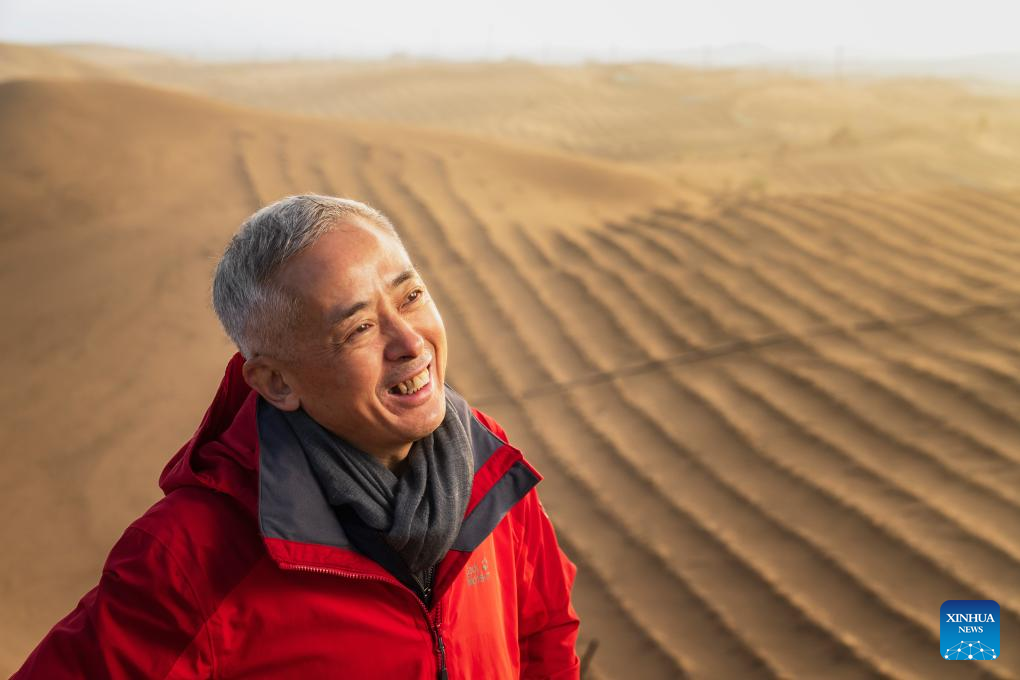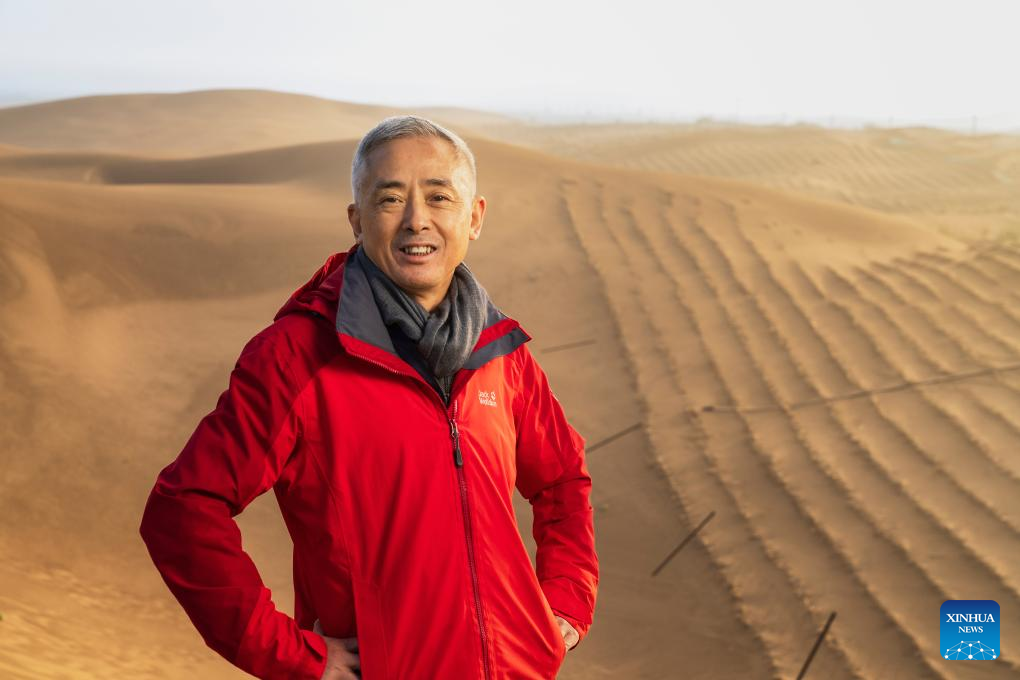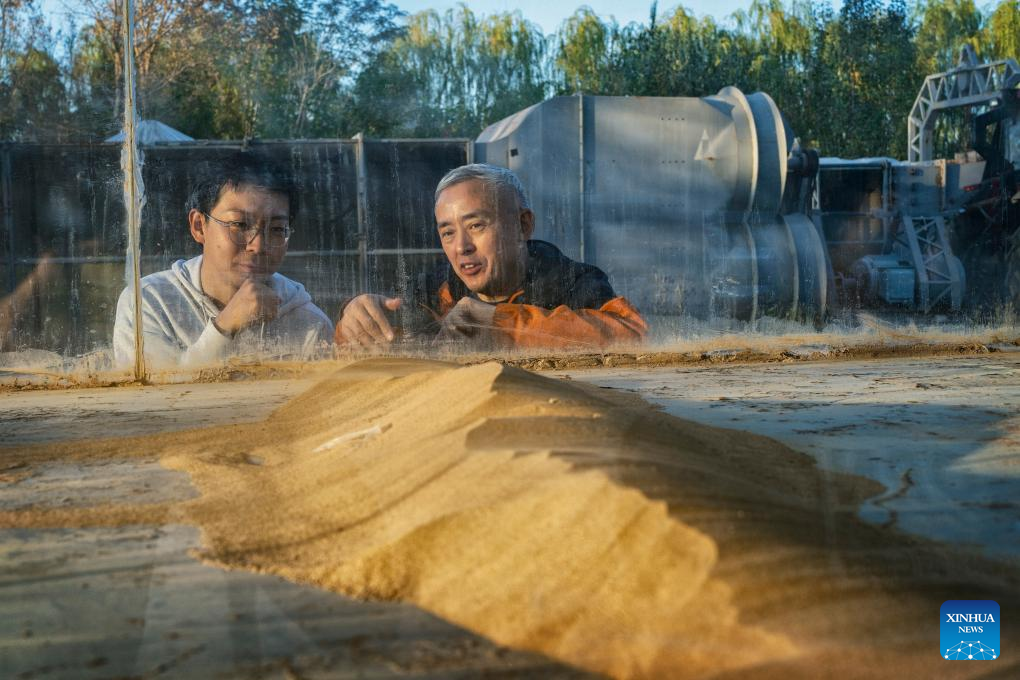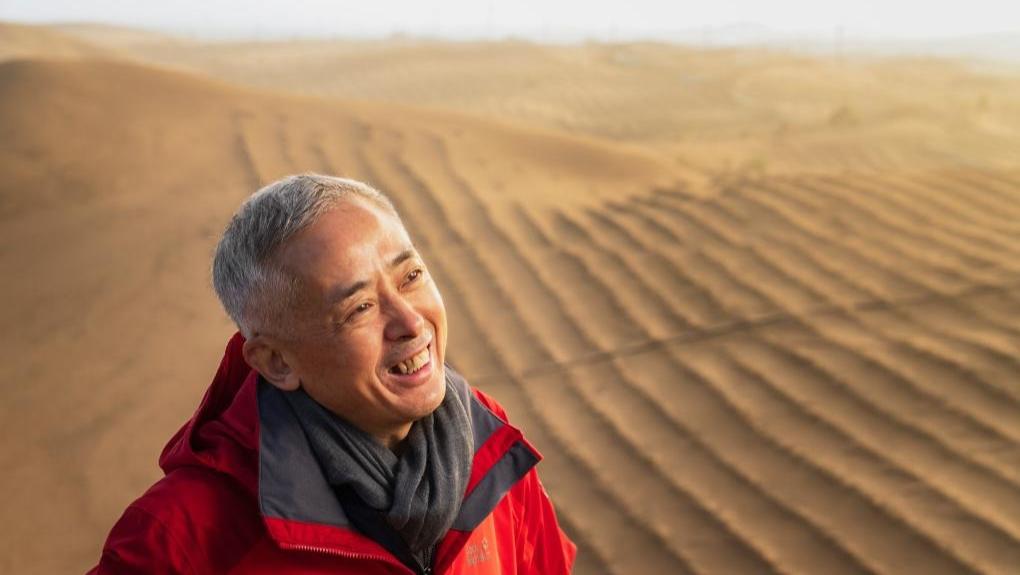Lu Qi poses for a photo at an experimental center in Dengkou County of Bayannur, north China's Inner Mongolia Autonomous Region on Oct. 13, 2024. (Photo by Justin Jin/UNEP/Handout via Xinhua)
NAIROBI, Dec. 10 (Xinhua) -- Lu Qi, a Chinese scientist, is among the six winners of the 2024 Champions of the Earth Award, announced Tuesday by the United Nations Environment Program (UNEP) in Nairobi, Kenya's capital.
Honored in the Science and Innovation category, Lu has spent three decades working in science and policy, helping China reverse environmental degradation and reduce desertification, according to the UNEP.
Additionally, Lu played a pivotal role in implementing the world's largest afforestation project and in establishing expert research networks and partnerships, the UNEP said in a statement issued in Nairobi.
As the chief scientist at the Chinese Academy of Forestry, Lu has championed multilateral cooperation to combat desertification, land degradation and drought.
"This award is the highest recognition and greatest encouragement for China's forestry and grassland efforts, especially for the scientists and technologists dedicated to sand control," Lu said in a statement to Xinhua.
He said China's efforts to combat desertification over the past seven decades have been rooted in scientific and technological advancements supporting ecological progress.
The Champions of the Earth Award would inspire more scientists and ecological practitioners, particularly younger generations, to contribute actively to global environmental protection and the achievement of the UN's 2030 Goals, he said.
He also expressed a desire to see more effective and adaptable desertification control technologies shared globally through initiatives such as China's Belt and Road Initiative and the Global Development Initiative.
"Together, we can contribute to building two 'Great Green Walls' for the planet and make China's contribution to a greener Earth," Lu said.
Since 2005, the Champions of the Earth Award, UNEP's highest environmental honor, has recognized trailblazers at the forefront of protecting the planet and its inhabitants.
The award has honored 122 laureates for their exceptional ecological stewardship, with the 2024 winners celebrated for their outstanding leadership, bold actions and sustainable solutions to tackle land degradation, drought and desertification.
Among the six winners of the 2024 UNEP Champions of the Earth Award are Sonia Guajajara, Brazil's minister of indigenous peoples; Amy Bowers Cordalis, an Indigenous rights advocate from the United States; Gabriel Paun, a Romanian environmental defender; Madhav Gadgil, an Indian ecologist; and SEKEM, a sustainable agriculture initiative from Egypt.
UNEP Executive Director Inger Andersen said the accomplishments of the 2024 Champions of the Earth Award winners remind humanity that the fight to protect vital ecosystems, such as land, rivers and oceans, is achievable.
"Almost 40 percent of the world's land is already degraded, desertification is on the rise, and devastating droughts are becoming more frequent. With the right policies, scientific breakthroughs, system reforms, activism, and the vital leadership and wisdom of Indigenous peoples, we can restore our ecosystems," Andersen said.
Lu Qi poses for a photo at an experimental center in Dengkou County of Bayannur, north China's Inner Mongolia Autonomous Region on Oct. 13, 2024. (Photo by Justin Jin/UNEP/Handout via Xinhua)
Lu Qi (R) works with a colleague at an experimental center in Dengkou County of Bayannur, north China's Inner Mongolia Autonomous Region, on Oct. 11, 2024. (Photo by Justin Jin/UNEP/Handout via Xinhua)







 A single purchase
A single purchase









